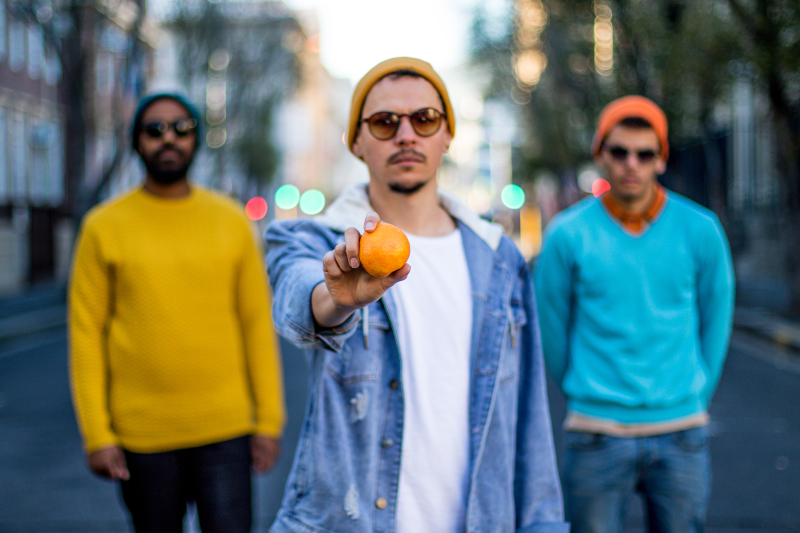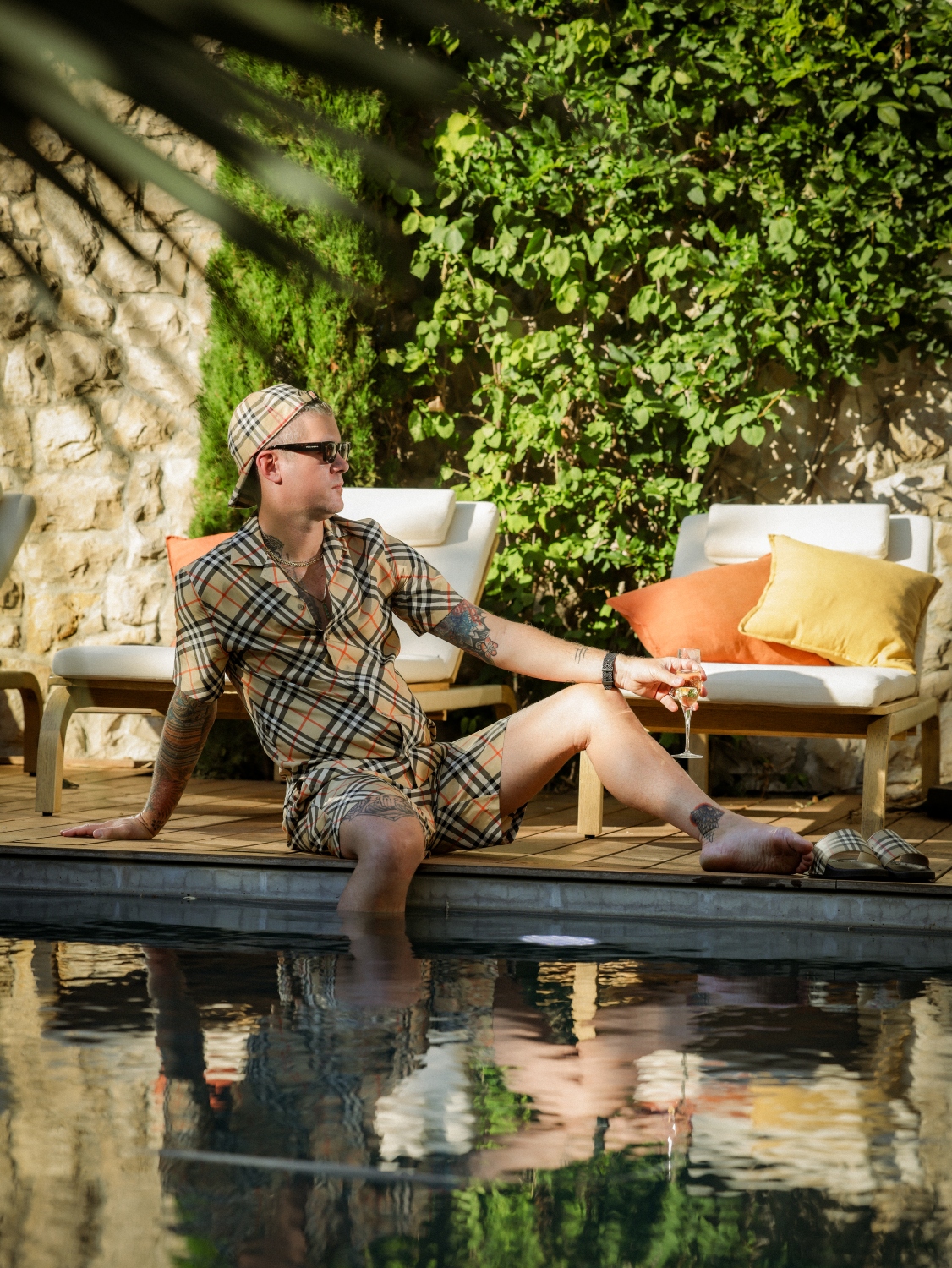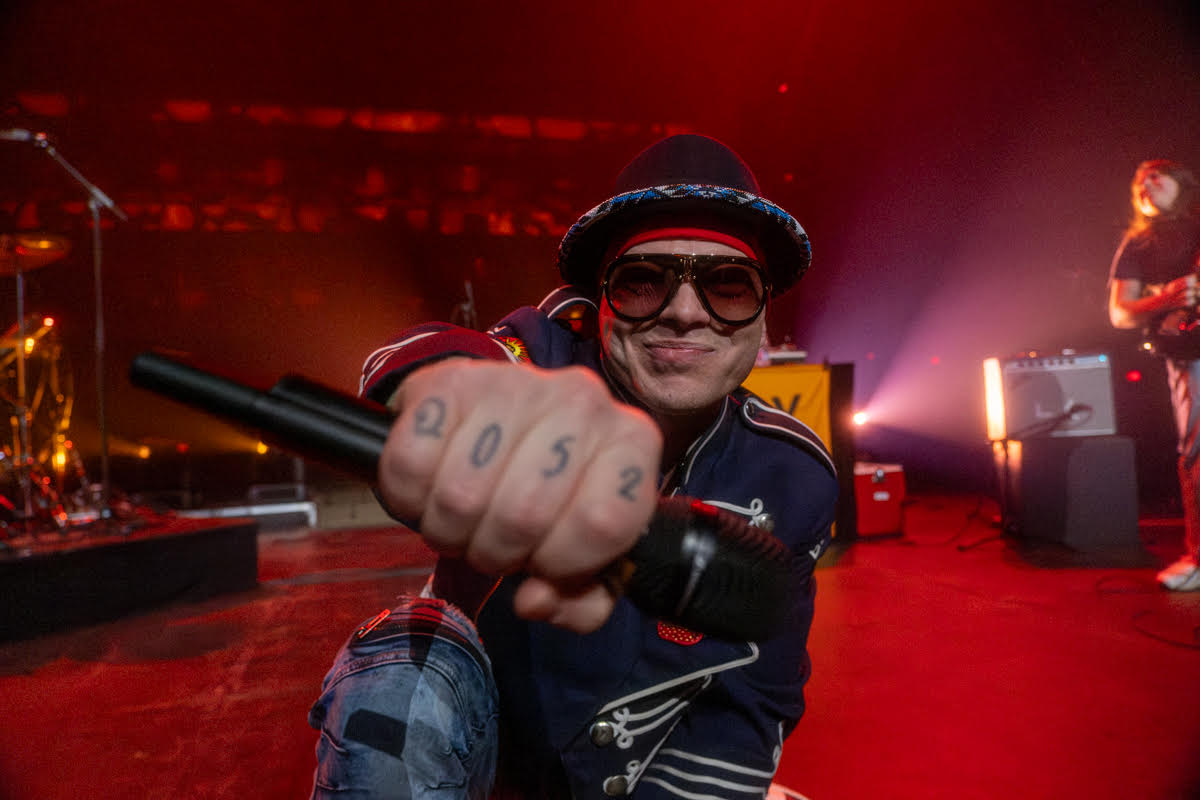
In conversation with South African funky indie-pop artist Fruit Vendor
Image credit: Gerald Petersen
Striking the sweet spot between quirky and authentic music can be tough, especially when you’re incorporating aspects of hip-hop, funk and pop into the mix. Joshua Prinsloo, head of the groovy South African project Fruit Vendor manages to hit this point and then some, creating relatable music that embodies the spirit of all rising artists while still incorporating a bit of humour. The musician has taken it one step further with his latest crowdfunded project as he focuses on building direct relationships with his fans on numerous platforms, including Patreon. Part of his charm is willing to step into new territory, as he has done with his upcoming single, ‘The Sideline (for Zoe) (feat. Matthew October). Delving into a fan’s personal memories and gently cradling a childhood poem from her father, Fruit Vendor was able to craft the poem into a song at the fan’s request.
Pre-save: ‘The Sideline (for Zoe) (feat. Matthew October)’
While Fruit Vendor has already won multiple awards (including Barleycorn Music Club Songwriting Competition in 2018 and the Stonebear & Mayor eMerge Songwriting Competition in 2019), we believe these are just the beginning stages for the musician. Join us as we learn more about the ‘Man In The Mascot Suit’, aka Fruit Vendor himself, in the interview below.
Looking back, what was your earliest entry into music appreciation? And music production?
I come from a musical family – most of my mom’s side play keyboards, from my Ouma (granny) down to my youngest nephew. I grew up watching my mom playing keys at church and having singers from church come over to our house for rehearsals. So you can say gospel music was my first entry into music appreciation. My older brother introduced me to alternative music like Depeche Mode, Queen, Level 42 and to the local band scene. When I was 15, he gave me a bootlegged bundle of music production software and the rest is history, as they say. Before that, I started a rap crew with my friends for fun. So music was always there in one form or another.
How would you describe your sound?
It’s like Jamiroquai meets 21 Pilots meets Johnny Clegg (or at least that’s what I’ve heard people say it sounds like) – and a complete amalgam of everything I’ve been influenced by. If I had to choose a style, probably indie-pop with liberal sprinklings of funk, rap lyrics and narrative songwriting. I don’t write songs only for them to sound good, they must tell a story! That’s what really gets me excited.
Do you have a motto or mantra that you live by?
“Share the Fruit, Share the Journey.” This is Fruit Vendor’s slogan, if you may. I’ve always thought about my songs as different types of fruit (hence the name). Each song tells a different story, while ultimately serving the listener a hit of nutritious musical fruit. Practically, people always say the music inspires them – perhaps to share their own fruit and vend it. The journey portion carries the potential of having us all vend our fruit together, all the while making something uniquely fresh and edifying to those around us.
Tell us a little more about your upcoming fan-funded EP and how it was created
My upcoming EP entitled “Songs of Ascent” was funded entirely via fans on my Patreon page from mid-2020 to the present. Production on the tracks officially began when the first wave of COVID hit South Africa and we had 3 months of downtime to knuckle down and get stuck into new material, and after plans for touring “The Seedling” (my debut album released in Feb 2020) fell through. Although everything was cut short with a lot of what was planned for 2020 in limbo, we did have a small fanbase willing to support the creation of new works. The first single from the EP “The Sideline” is a track inspired by one of those fans Zoe, who discovered a poem her dad wrote for her when she was two years old amongst his possessions after he passed away. My band and I took the poem, wrote music for it and gifted an early version of the song to Zoe in remembrance of her dad (which for me is a career high point). The biggest challenge with the process of recording during lockdown though was that the band couldn’t meet in person for jams or writing sessions, so the whole EP was recorded via email file transfer with a few post-lockdown recording sessions to touch up specific parts.
Sonically, The EP as a whole leans more toward organic instrumentation (which is a bit of a departure from the electro-hybrid sound on The Seedling) and more emphasis drawn from jazz influences like Yellowjackets and the South African stylings of Jonathan Butler, Thandiswa Mazwai, 340ml, Paul Hanmer and Kyle Shepherd to name a few. I’m really excited about this evolution because it’s come a lot closer to the sound I hear in my head. Not to say I don’t love the older sound, it just feels a little more mature now.
There is something very intimate about creating a song from a poem between a father and daughter. Tell us how you went about turning this into music?
Zoe’s dad was a drummer who played rock, blues and jazz for a living – so I really wanted to honour his legacy by drawing from those styles and not tampering too much with the words he used in the poem he wrote to her. The writing was really simple, almost like he was addressing two-year-old Zoe in a language she could understand at the time. So, because the wording was really sparse (and my default setting leans toward the wordy) – I forced myself to write with what was given so as to preserve the sweetness and purity of the original. Lyrically the song speaks of a dad’s love for his daughter and instead of him promising her that life is gonna turn out perfectly, he’s warning her that life may very well rob her of her innocence and that he’ll always be there for her, watching from the sideline. Now that I’m the dad of a 6-month-old daughter, the song carries even more weight.
In a way, I wanted to create something that would remain with Zoe even though her dad is no longer with her, while still being true to my sound. After I’d written the scratch track, I sent it off to each bandmate and they transferred their takes back to me. Later, I brought in my friend Matthew October, who added in his tenor sax jazz flavour. We had the opportunity to perform the song for Zoe live as a bit of a surprise and simply put, it was a deeply moving and emotional experience for all parties. I can’t wait to release it.
Outside of music, what inspires you?
I’m really obsessed with what some are calling the New Renaissance – this idea that we’ve entered into a second renaissance that will be bigger and more influential than the first AND on a scale that the world has never seen before. This year alone has opened up so many novel opportunities in which creators from all walks of life are monetizing and creating sustainable livelihoods from business models that didn’t exist a year or two ago. I find this fascinating and extremely exciting – because I’ve always seen myself as a Renaissance Man (or multi-hyphenate), someone who can operate in many different idioms and expressions while at the same time maintaining excellence in each (and while being financially buoyant and/or enterprising). The latter is the struggle for most independent artists – we are wired to create beauty and serve in a world that up until now somehow hasn’t availed many spaces for us to flourish (particularly in South Africa).
Is there a particular historical moment in the music industry, that inspires you today as an artist?
Jack Conte (multi-hyphenate and keyboardist for bands Scary Pockets and Pomplamoose) blew a bunch of money on producing a music video and launching it on YouTube. Even though he launched to a million viewers, he quickly realized that the large view count could not account for the costs that needed to be recouped for making the video (he even maxed out his credit card). So in 2013, he launched Patreon – a site for creators of all kinds to receive funding/support directly from their fans through the internet on a monthly basis. And it’s still going today, with Patreon’s revenue going into the billions during last year’s lockdown.
When I think about it, I think Conte solved some of the biggest issues in the music business – Patreon has put the power and finance back into many musician’s hands (mine included). I’ve been on the platform for a year now, and it’s made a remarkable difference to how I think about and create art. I don’t need to be famous or have a label, my fans are the label. I think we’re gonna be seeing many similar developments in the tech space pertaining to music in the coming years and I’m all for it. What truly excites me though, is the idea that African musicians/creators could one day occupy this space too. For instance, why don’t we have our own music instrument developers and manufacturers? Why do I need to import all the gear I use? Where is our version of Patreon?
Tell us one interesting fact about yourself that no one would expect.
I love eating chicken bones and sucking out the marrow! I’ve ruined many dates by way of this practice. One girl didn’t mind, so I married her.
Five words to leave with your fans?
Keep On Sharing Your Fruit
Follow Fruit Vendor
Facebook – Instagram – Spotify – Twitter
By Sarah Britton







